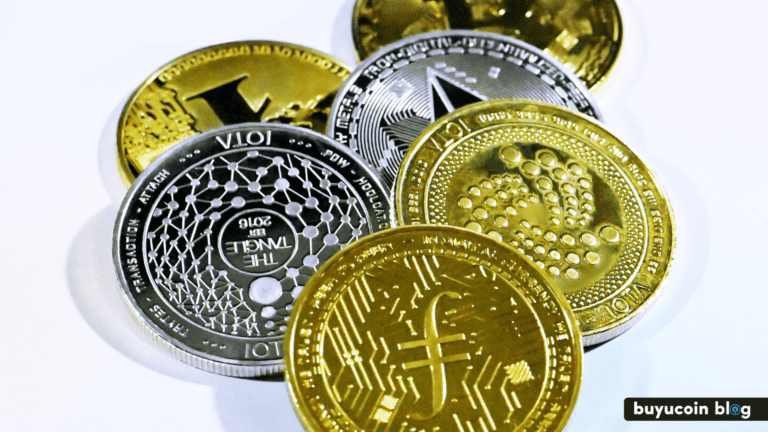A few years back if you have asked” will altcoins replace bitcoin ” it might sound absurd.
Bitcoin has superior investing basics than the large majority of altcoins, it is fair to claim. Bitcoin is the most popular cryptocurrency, having been acquired, owned, and exchanged the most. It has a market valuation of around $1.2 trillion, accounting for more than 60% of the entire market capitalization of cryptocurrencies. Bitcoin’s daily trading volume exceeds $30 billion, indicating that it is a highly liquid asset.
Unless a solid practical case can be made for each Bitcoin alternative, there is a great likelihood that the currencies will eventually fade away. Many cryptocurrencies were established for experimentation, but even those with superior fundamentals will struggle to catch up to Bitcoin. While this is going on, Bitcoin’s popularity and demand are increasing.
What are Altcoins?
Altcoins (alternative coins) refer to all cryptocurrencies other than Bitcoin. They get their moniker from the concept that they are alternatives to Bitcoin and regular fiat money.
The first altcoin appeared in 2011, but today there are currently hundreds of them. Early altcoins sought to improve characteristics of Bitcoin like transaction speed and energy efficiency. Current cryptocurrencies fulfil a range of functions based on the authors’ objectives. Because altcoins make up such a large portion of the market, every crypto investor should be familiar with how they operate. Continue reading to find out what altcoins are used for, their benefits and drawbacks, and much more.
How Can Investors Spend on Altcoins and Bitcoin?
As with any new investment, it’s critical to conduct thorough research and understand all of the dangers. Experts advise against investing in cryptocurrency if it means you won’t be able to meet other financial obligations, such as paying off debt, creating emergency savings, or maxing out existing retirement accounts. And just because crypto is new and intriguing doesn’t imply you should invest in it – people have been saving and investing for retirement for a long time before crypto existed.
Will Altcoins Replace Bitcoin in the Future?
Bitcoin, the globe’s largest and most successful cryptocurrency, has analysts questioning if it will be able to maintain its price. There are also rumours of an increase in the value of altcoins. According to altcoin news, Bitcoin alternative cryptocurrencies are performing very well on the charts, with some long-standing competitors, like Ethereum, still battling for an increasing market value.
So now, let’s understand what are the best altcoins to invest in 2022.
10 Best Altcoins To Invest In 2022
1. Ethereum (ETH)
Ethereum (ETH), the first Bitcoin alternative on the altcoin list, is a decentralised software platform that allows smart contracts and decentralised apps to be written and run without any interruption, fraud, control, or interference from a third party. Because those who lack governmental infrastructure and formal identification may get bank accounts, loans, insurance, and various other financial products, the implications for individuals in some countries are more tempting.
2. Litecoin (LTC)
Litecoin (LTC), introduced in 2011, is built on an open-source worldwide payment network. It is not regulated by any central authority and uses scrypt as a PoW that can be decoded using consumer-grade central processing units (CPUs). Litecoin is similar to Bitcoin in many aspects, except it has a higher block production rate and faster transaction completion time.
3. Cardano (ADA)
Cardano (ADA) is an “Ouroboros confirmation” cryptocurrency developed by technologists, mathematicians, and cryptography professionals using a research-based methodology that provides altcoin meaning. One of Ethereum’s five initial co-founders, Charles Hoskinson, co-founded the project.
4. Polkadot (DOT)
Polka dot (DOT) is a one-of-a-kind PoS coin that aims to provide compatibility with other blockchains. Polka dot’s important element is its relay chain, which enables network interoperability. Para chains, or alternative blockchains with their native coins, are also supported for certain use cases.
5. Bitcoin Cash (BCH)
Bitcoin Cash BCH is significant in altcoin history since it was one of the original Bitcoin’s first and most effective hard forks. A split occurs in the bitcoin realm due to disagreements and arguments between programmers and miners. Although digital currencies remain decentralised, substantial modifications to the code that underpins the token or coin in question must be approved by many individuals; the procedure for doing so varies as per cryptocurrency.
6. Stellar (XLM)
Stellar (XLM) is an accessible blockchain network that connects financial institutions to provide enterprise solutions for large transactions. Substantial transfers between financial institution companies that used to take days involve a wide range of intermediaries and cost a lot of money may now be made in a matter of seconds, with no middlemen and at little to no cost to the affected parties.
7. Dogecoin (DOGE)
Dogecoin (DOGE), considered by some to be the first “meme coin,” made a sensation in 2021 when its price surged has made a place in the top 10 altcoins. Some large firms accept the currency, which has a picture of a Shiba Inu as its avatar.
8. Binance Coin (BNB)
Binance Coin (BNB) is used to pay for trading costs on the Binance Exchange. It is the third-largest cryptocurrency on the list in terms of market capitalisation. Those that utilise the token as payment for the exchange can trade at a discount.
9. Tether (USDT)
Tether (USDT) was one of the earliest and most popular classes of cryptocurrencies known as stable coins, which try to limit volatility by tying their valuation to a currency or other external reference point. Tether and other stable cryptocurrencies attempt to smooth out price fluctuations to attract consumers who would otherwise be cautious of digital currency. Because most digital currencies, including important ones like Bitcoin, have seen recurrent bouts of high volatility
10. Monero (XMR)
Monero XMR is an anonymous, secure, and untraceable cryptocurrency. This fully accessible cryptocurrency was established in April 2014 and quickly gained popularity within the cryptography industry and its supporters.
Bitcoin Vs Altcoin – Understand the Difference
Bitcoin has superior investing basics than the large majority of altcoins, it is fair to claim. Bitcoin is the most popular cryptocurrency, having been acquired, owned, and exchanged the most. It has a market valuation of around $1.2 trillion, accounting for more than 60% of the entire market capitalization of cryptocurrencies. Bitcoin’s daily trading volume exceeds $30 billion, indicating that it is a highly liquid asset.
Unless a solid practical case can be made for each Bitcoin alternative, there is a great likelihood that the currencies will eventually fade away. Many cryptocurrencies were established for experimentation, but even those with superior fundamentals will struggle to catch up to Bitcoin. While this is going on, Bitcoin’s popularity and demand are increasing.
Conclusion
Bitcoin has superior investing fundamentals than the vast majority of altcoins, to be sure. Bitcoin is the most widely bought, kept, and exchanged cryptocurrency. It has a market valuation of $1.2 trillion, accounting for more than 60% of all cryptocurrency market capitalisation. Bitcoin has a daily trading volume of more than $30 billion, making it a very liquid asset.
Unless there is a compelling case to be made for each Bitcoin alternative, there is a good chance that the coins will fade away. Many altcoins were founded for the purpose of experimentation, but even those with superior fundamentals will struggle to catch up to Bitcoin. Bitcoin’s popularity and demand continue to rise at the same time.
For more altcoin news and updates subscribe to BuyUcoin Blog.













